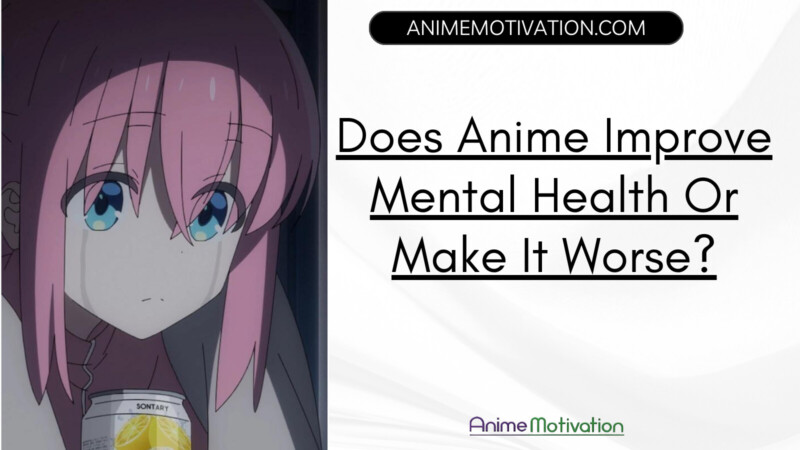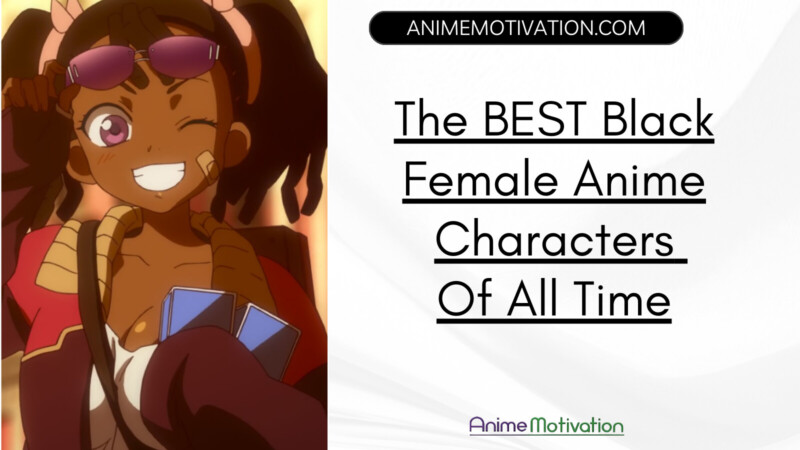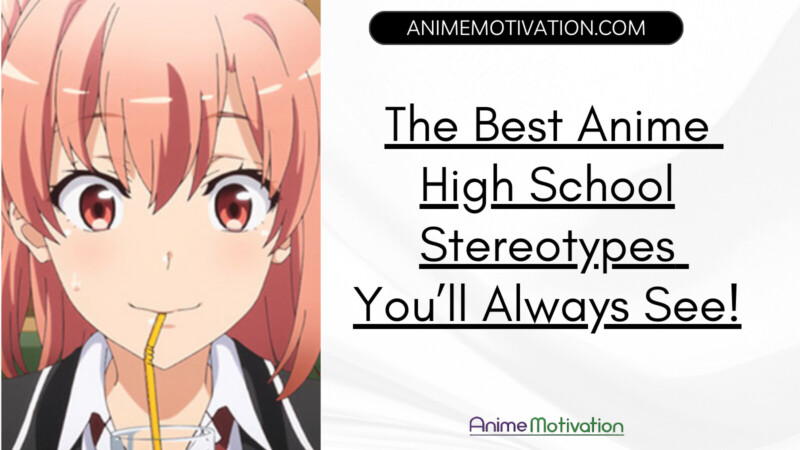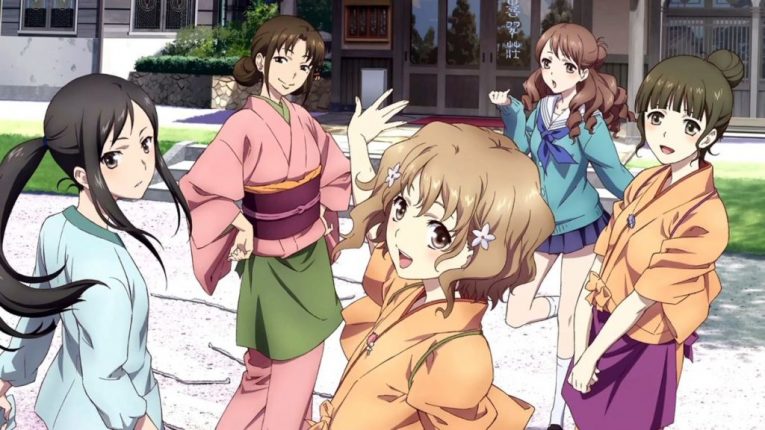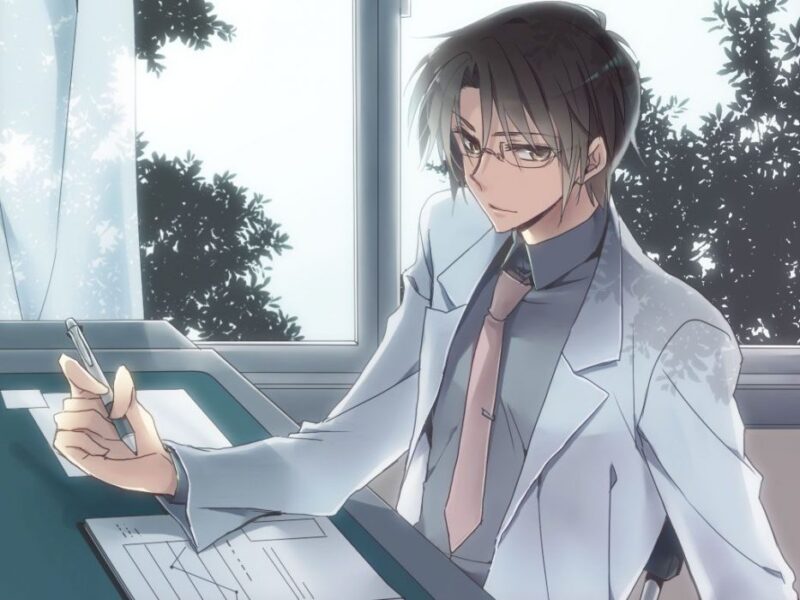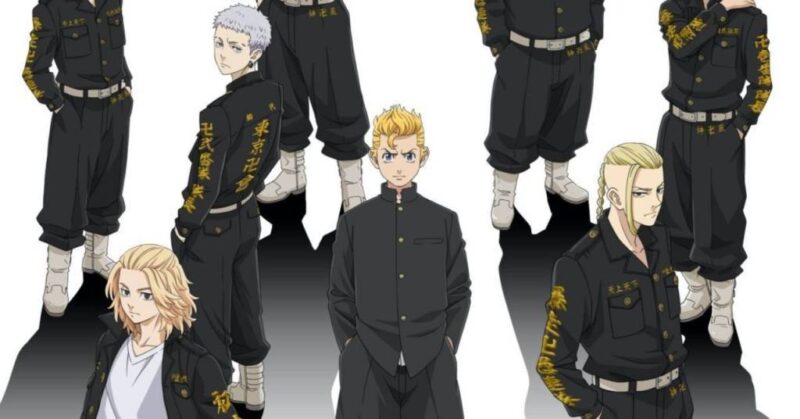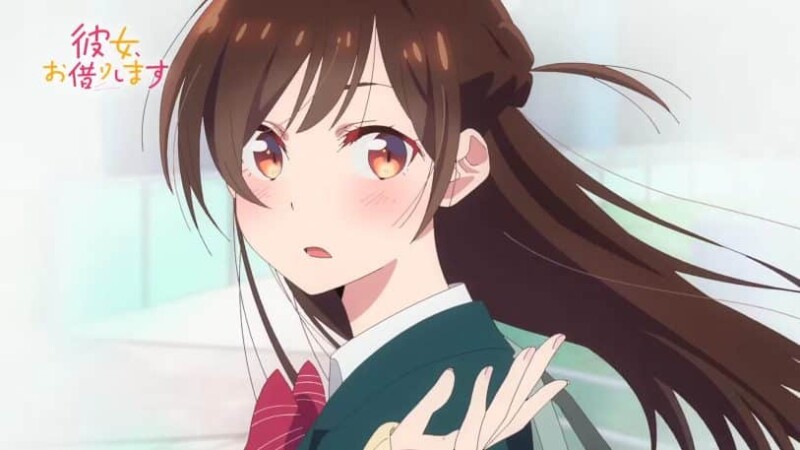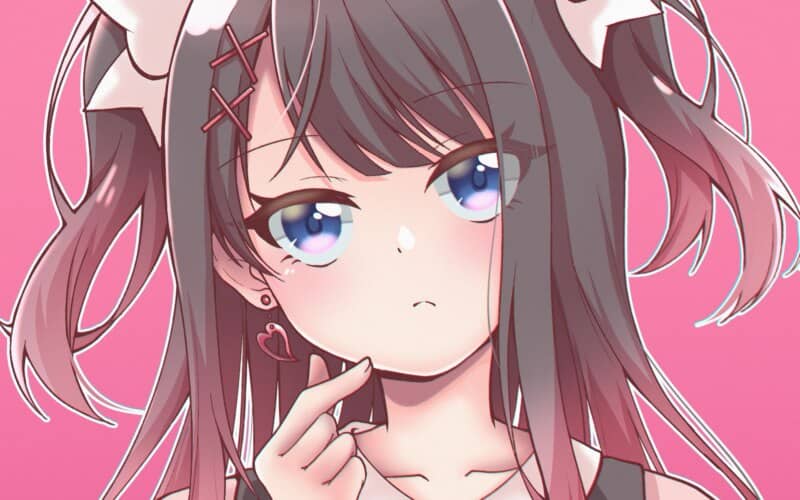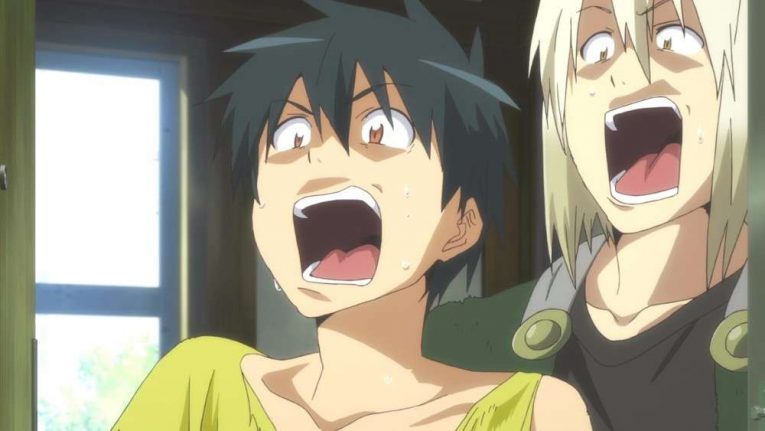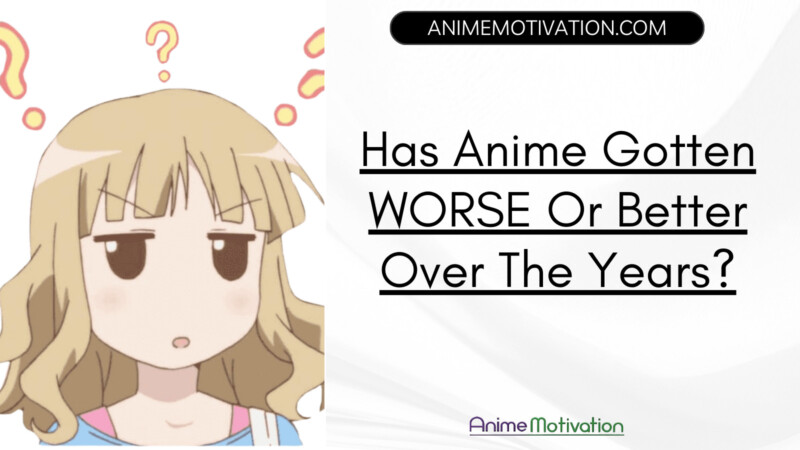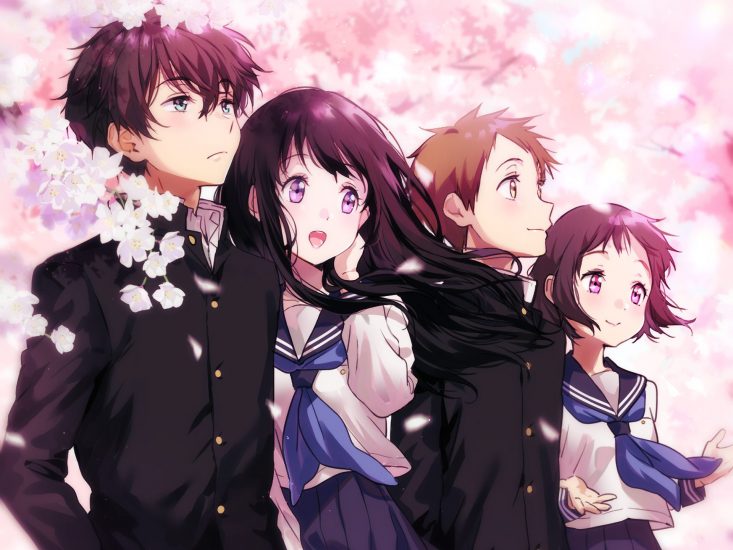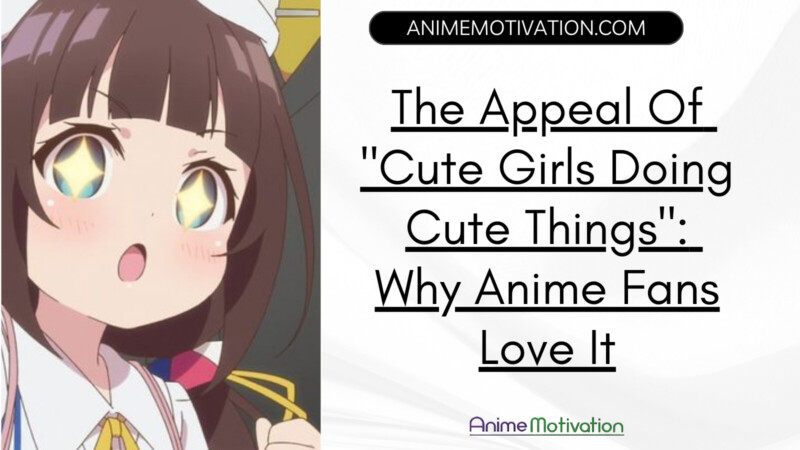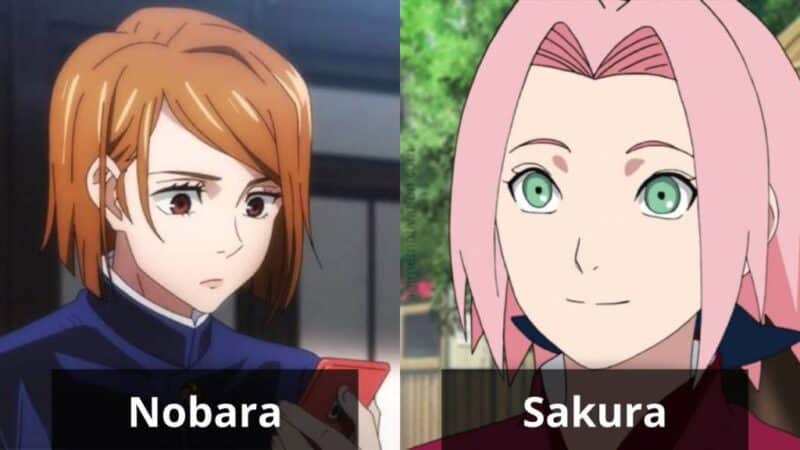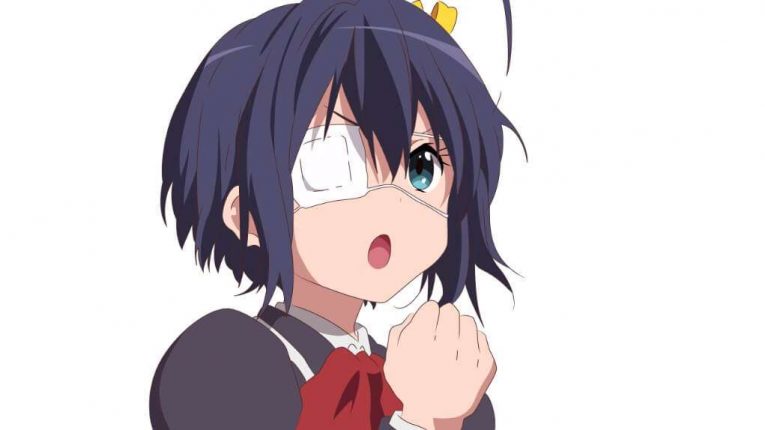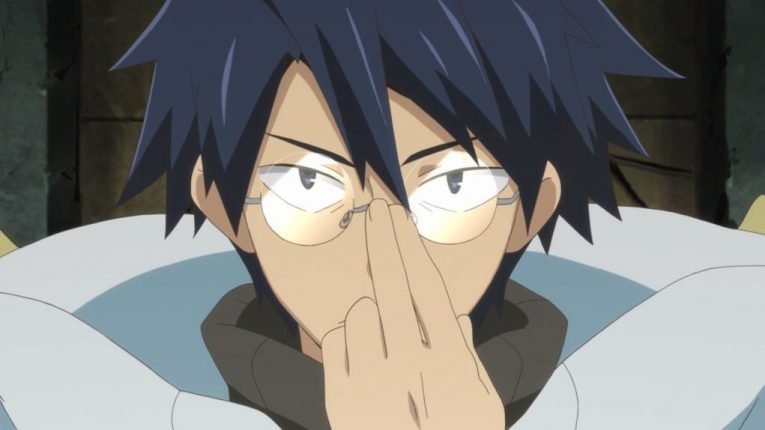The internet is a mixed bag.
If you look for answers on this topic of mental health and anime, there are clearly some websites spreading nothing short of propaganda and outright false information based on hearsay.
Things like “anime is bad for your mental health because it’s violent” as a paraphrase.
As far as positive thoughts on mental health and anime, it’s not as prominent or “out there”.
So let’s talk about it from a bird’s eye view.
The positive effects of anime:
1. Healing and wholesomeness

Anime, like other forms of entertainment, can be healing and wholesome to the soul. But anime is MORE healing than others because of its calming nature and how relaxed the vibes can be.
Without the politics, the virtue signalling, the grandstanding, and the nonsense you tend to see in Western entertainment, even when the topic is relatively innocent.
Flying Witch, an anime adapted from a manga is a perfect example of this type of anime. Watching it, you’ll be set at ease since the plot isn’t too involved, and it’s generally about life in the countryside with pleasant characters.
You can even get a sense of this with anime like Saekano, despite the anime being a harem and an ecchi-type series.
The only thing that can be compared to anime is music for its healing effects.
2. You learn new things about various history

History doesn’t always have to be the ugly side of things. Anime has plenty of it.
The anime Otaku Elf from 2023 was about Elda, an elf, and Koito, who are associated.
In almost every episode you get a funny history lesson about Japan and how they used to do things vs how they do it in the present day, From the perspective of an Elf who’s 100s of years old of course who “lived” through it.
Comedy aside, it does give you a lot of healing and wholesomeness on top of learning which is a positive for anime.
3. Anime is filled with life lessons
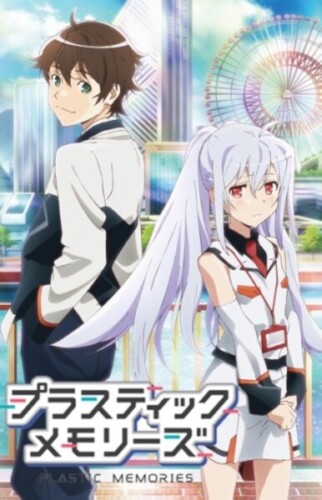
In My Hero Academia, the immediate lesson for DEKU is that people can be given a chance to pursue their dreams, even when it seems impossible.
He is given the chance of a lifetime, and he doesn’t dare to turn it down.
In the anime Plastic Memories, the life lesson is clear: time is limited, more so for some people with conditions, diseases, and so on.
Tsukasa and Isla spend their time like it’s about to run out, and it makes the anime’s life lessons that much more real and also emotional.
In DBZ, the life lesson is about working hard and constantly trying to improve and challenge yourself every day. And by doing so, you’re guaranteed results over time.
There’s also the lesson of an underdog being able to overpower the person everyone expects to win, either through luck, hard work, technique, or a mixture of other things.
4. You can directly learn about Japanese culture

Oda Nobana is an anime about the real Nobunaga from Japanese history, with the main characters turned into female characters to represent the story.
Aside from this detail, the story is on point and gives you the story of Nobunaga in depth unlike any other anime is able.
In the anime Hanayamata, you learn about Yosakoi, a Japanese-style dance, and your average Shounne will teach you about Japanese foods, sayings, culture, and cliches.
That’s another positive effect of watching anime.
5. Anime is inspirational

When it comes to shounen more than others, inspiration is baked into the anime’s core. It’s about overcoming the odds, as cliche as it can be portrayed at times, and rising to the challenge.
It’s about doing the things you want to do and finding a way to do it successfully. Even if it’s difficult or hasn’t been achieved before.
We see this in Fairy Tail with Natsu, Lucy, Gray, Erza, and other characters. They’ve individually accomplished things they never thought possible, and even when they did think it was possible, it was still hard.
Yet, they never gave up on the main goal and pushed forward, sometimes as a unit, to achieve that overarching goal.
Any anime that makes you WANT to do something is inspirational by design, like how DBZ started a wave of fans who started their own gyms as a result, or around the concept of the show.
6. Anime can be a positive form of escapism

Anime isn’t like most forms of entertainment. It’s creative at its core, and this creativity isn’t ruined by politics, bullshit inserts, or anything of the sort.
Even when there is an “insert” of sorts, it’s not comparable to what the West loves pushing out to the annoyance of so many fans, viewers, listeners, or watchers.
That’s why anime can be so creative and be a positive form of escapism unlike any other. There are no limitations to what anime can do, portray, express, show, draw, or design since it’s fictional.
That leads to anime like Land Of The Lustrous, Kill La Kill, Non Non Biyori, Railgun, Saiki K, Spice And Wolf, and so many more anime shows with positive escapism (and positive messages).
7. A surprising sense of realism
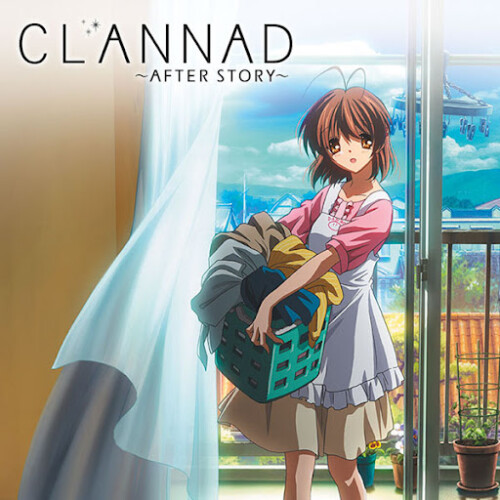
The anime Clannad by Kyoto Animation will always be one of the realest anime out there. It may have a “slight” fantasy element that doesn’t get in the way, but it’s one of the realest shows of all time.
In season 1 we see characters growing up through school and the main characters who date. Then season 2 we see these characters a little older after leaving school, having kids, and the extreme levels of trauma and drama that follow.
The realism in how it’s all written out, portrayed, and told, is why it’s a classic among slice of life and romance fans.
Then there are anime shows like Jormungand that portray a very realistic image of arms dealing. From the way politicians are involved in these deals, to the travelling to multiple countries to fuel wars through selling weapons, to the dangers arms dealers face, and more.
Koko Hekmatyar is an entertaining protagonist, and her bodyguards who protect her millionaire arms dealing lifestyle is also a realistic and true to life depiction few anime can compete with.
Realism = relatable, and that also means you learn from it which is a positive.
The “potential” negative effects of anime:
1. Burying your head in the sand
What I mean by this is anime can be used as a “Bury your head in the sand” source of entertainment, just like any other to be fair.
It can be used as an outlet to hide from your problems, your worries, and everything you feel is wrong in your life that you don’t wanna face head on.
This isn’t anime’s fault, but it can be used as an excuse to do this which is a negative.
2. Confusing fiction with reality

How many times do you log in to Twitter and see people confusing fiction with reality? Especially when it comes to anime in general.
People get it twisted so often that you start to worry about people’s perception of life, fiction, and not realizing the two aren’t the same.
One example of this is when an anime girl like Ilulu the dragon (Miss Kobayashi’s Dragon Maid) is seen as a 10 year old girl or the equivalent by critics, who then claim people are pedos for liking said character.
Or this false accusation that anime fan service of women distorts the views of young men which is like saying Halo and Call Of Duty cause boys to become violent men who do mass shootings.
The ones confusing fiction with reality in this case are the accusers and the critics, rather than the fans themselves.
Related: The HYPOCRISY Of Toxic Female Anime Fans And Yaoi Fangirls
3. Prioritizing anime over the real world
There are a legitimate group of anime fans who bury their head into anime so deep that they start ignoring the real world, and even prioritize anime over their reality.
This is similar to gamers in South Korea who have spent so long indoors gaming that they’ve died as a result, of their outside life falling apart because they dismiss it.
We are talking extremes, and we are talking about a minority situation, AND we are talking about an external issue (anime), but it still applies.
It could be argued to be a negative aspect of anime, even if anime itself isn’t the cause.
The “science” of anime and mental health:
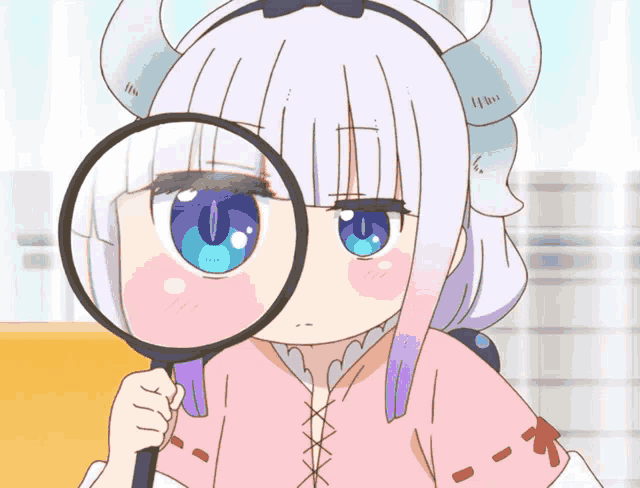
There is no science when it comes to proving that anime causes mental health problems, or that anime improves the mental health of its fans and viewers.
Though with the internet being as big as it is there is an overwhelming amount of “personal” evidence that shows the positive effects of anime, whereas there is some evidence that people can have delusional viewpoints about anime.
The latter not being a cause of anime, but a correlation if you observe fandoms, forums, social media, and the worst kind of comments coming from certain people.
There was a study published on PubMed, “Does anime culture bring depression?, which also highlighted dol culture in Japan.
This is what can be gathered from the study:
Psychological outcomes vary within different subcultural groups, with anime, idol, and hip-hop identities being positively associated with adverse outcomes like anxiety, aggression, depressive symptoms, and suicidal tendencies.
As well as:
NN (neural networks) achieved up to 71% accuracy in predicting mental health problems based on cultural preferences.
But this isn’t a fact, only a correlation and a small study in the grand scheme of things.
It’s a drop in the water like many studies of its kind and shouldn’t be taken at face value.
Opinions on anime and mental health from the community:
In an article by Michigan CRS, in the section “What does this do for us”, they had a bit to say.
Here’s a quote on anime’s positives:
The combination of music, art, and storytelling in Iyashikei anime creates a therapeutic experience, promoting relaxation and emotional well-being.
Their overall point is that Iyashikei, a type of anime genre, can have healing benefits for anime fans.
There are also these Tweets:
Positive effects of high schoolers watching anime:
Serves as an outlet for students
Used in therapy as graphic medicine to improve sessions
Students develop a sense of relatedness with characters
— Effects of Anime (@Effects_ofAnime) November 13, 2021
This anime in question is My Roommate is a Cat. I was pretty curious about this one last year so I’m glad to hear it’s had some positive effects on people! pic.twitter.com/tCaFz4Vbs1
— yayoi giallorossi ❤️⚽ (@buildknuckle) February 22, 2020
James Alcobilla from Dagupan City said that one of his goals in pursuing the study is to encourage other students in seeing the value of anime
— Daily Guardian (@dailyguardianph) December 3, 2022
The last one is the most interesting where a student did a thesis to show the positive effects Haikyuu has as an anime, and how anime can be positive by extension.
He of course succeeded in defending not just his views, but this thesis.
Related: 12+ Motivational Anime Like Haikyuu To Start Watching
Why anime’s benefits to mental health are debated:
1. Some people can’t accept the idea that anime can be positive
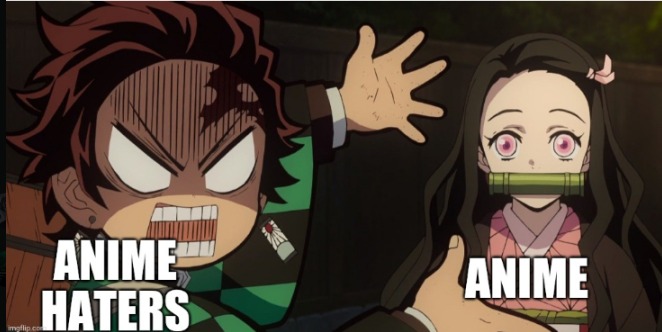
When you’ve been living your life for so long criticizing, bashing, and jumping on the bandwagon of propaganda, you can’t accept that a foreign product has positive benefits.
Let alone that it’s good for people.
You have to stay in your ignorance and refuse to accept anything outside of that because you know if you do, your ego will be bruised and you’ll have to accept responsibility.
How many people are willing to hold themselves accountable for the way things are in this day and age of victimhood and entitlement?
2. Critics, typically Westerners, have massive egos
This is a follow up to the last point, There’s a book called “Ego is the Enemy”, and it continues to be the truth.
As long as I’ve been in the anime industry, I’ve noticed how egotistical Westerners are when it comes to anime or anything connected to it.
We saw this when Patreon showed the world how massive their ego is and their fake moral compass, that they banned anime and hentai artists specifically.
They made sure to word it to mean “Japanese designs” only.
But anything considered Western as far as designs and art was OK and got a pass from their gatekeepers.
Or how many journalists “journos they call them) over the years have attacked anime fans for not bowing down to the general consensus of how to think.
3. The narrative matters more than the truth
In the end, the narrative means more than anything else. The truth is irrelevant and is put in the backseat.
We seen this with The Shield Hero controversy, the Ishuzoku Reviewers controversy, and anything else where critics and westerns proved that “Politics” matters more than creativity, freedom, and more importantly, the positive aspects of anime which come from its creative freedom.
This is also why anime has positive benefits and is loved by so many in the first place.
Relevant: This Is Why Anime Will Never Be Politically Correct
Anime’s benefits to mental health matter in the grand scheme of things
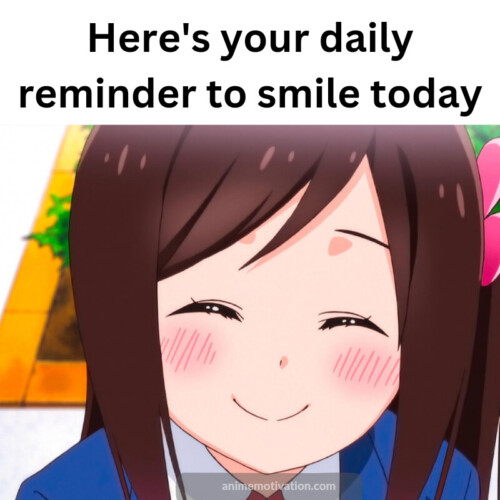
That’s not to say that claim is scientific or to say that anime is the secret to fixing people’s mental health problems. That would be delusional.
But when you ask millions of fans either at a time or individually, what anime has done for their mental health and well-being, what it’s taught them, etc, they’ll tell you many of its positive effects and aspects without the BS.
That is what matters most in the end assuming the person is in the right state of mind.
–
Recommended:

